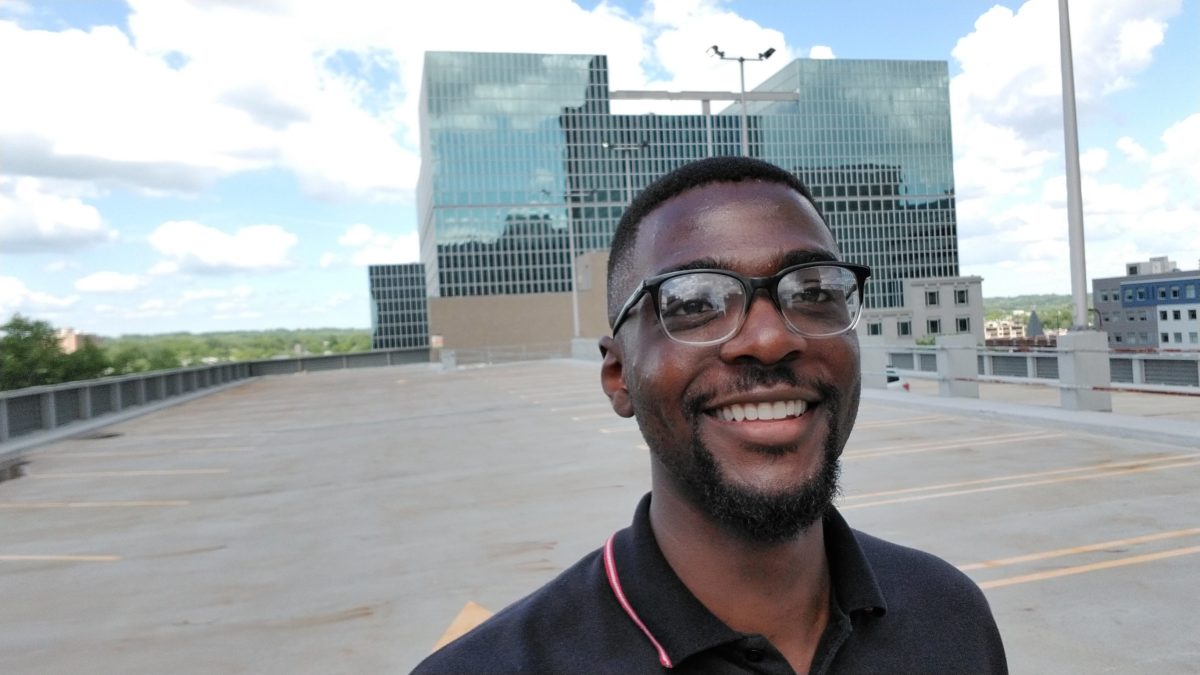Crowdfunding isn’t just for game launches and medical bills anymore. Nowadays, it’s also a tool to bring social good to the high-stakes investing world.
You know Garry Johnson III as the founder of First Founders Accelerator and a stalwart of Delaware’s entrepreneur ecosystem. But more recently, the University of Delaware alum is also a Howard University MBA candidate working on a new venture called Bison Venture Partners. And, he’s leading a crowdfunding-focused First Founders-WeFunder collaboration as an early adopter of the Wefunder City Partners program. This initiative to boost funding for underrepresented founders goes by the name PhilaDelaware.
Johnson came by Technical.ly’s public Slack this week for a lunchtime AMA. We talked crowdfunding, equity in entrepreneurship, and advice for people with an idea and little to no money.
Consulting and crowdfunding for racial equity
Bison Venture Partners is a management consultant firm working with underrepresented founders. Johnson is launching it alongside Howard classmates.
“We’ve come together to take insights gained from running nonprofits like First Founders to now create an impact in our HBCU ecosystem,” Johnson said via Slack. “This is a for-profit company working to disrupt the trillion dollar blind spot where investors are missing out by not investing in multicultural and women business owners.”
To start, Bison Venture Partners is gauging investor interest with its own Wefunder campaign to raise $250,000 via Regulation Crowdfunding, or Reg CF. That’s the SEC rule change allows companies to raise up to $5 million from investors on crowdfunding sites where anyone can participate, up from the previous $1.07 million cap. It was established in response to use of platforms such as Kickstarter and Indiegogo.
In this stage of Bison’s development, no money is changing hands via the Wefunder campaign — it’s simply a measurement of interest in investment, sans commitment.
“We have a goal to source $100 [million] to Black-owned businesses, support 1,000 women-owned businesses, and enable 10,000 new angel investments over the next decade,” Johnson said. “Helping other businesses get set up and running successful Reg CF campaigns is what will help us reach those lofty goals, and we’re just practicing what we preach by running our own campaign as well! The initial interest and support has been amazing.”
One of the things Bison Venture Partners plans to do with the investment funding is acquire a PopShop robotic storefront, which “serves as a physical distribution channel for product-based businesses.”
“The PopShop is a beautiful machine. It was also invented by a Black woman named Dawn Dickson,” Johnson said. “She’s raised [more than $6 million] via equity crowdfunding, and I’m a proud investor in her company. We’ll be operating our machine on Howard University’s campus, and potentially taking [it] ‘on tour’ in a couple of different buildings.”
Advice for founders
We asked Johnson, as someone who works with a lot of early-stage startup founders, what advice he would give someone who has a business idea but little to no money to launch it. Here are five things to know:
- Always build things people want — “You have to start with that, so founders need to get out of their own heads and into the real world talking to problem owners/potential customers.”
- There are many different ways to raise money for your venture — “I bias towards leveraging people-power via equity crowdfunding, but other methods such as pitch competitions and grants are phenomenal too.”
- Regardless of what method of funding you choose, investors most likely want to see some form of a proof of concept or some form of traction in the market — “You’ve got to prove that you don’t just have a great idea, but you can form a team around you who’s willing to help you experiment.”
- Build a community that sees the journey from the ground up — “Those people are the most likely to be your biggest fans and support however they can, and those relationships are their own form of capital.”
- There are many potential paths to build community — College is “part of my personal/professional strategy,” he said. “There are also plenty of people who leverage social media to build community. We’re seeing that with all the Web3/DAO hype going on right now. It’s really just about figuring out what tools you have at your disposal and making the most of them.”
Entrepreneurs who are interested in learning more about Reg CF can get involved with PhilaDelaware on Wefunder, even if it’s just to see if it’s right for you. Johnson said he personally works with every founder in the ecosystem who comes through the page.
Join the Technical.ly SlackJoin the conversation!
Find news, events, jobs and people who share your interests on Technical.ly's open community Slack

Delaware daily roundup: Greentech terms to know post-Earth Day; generative AI's energy costs; anti-AI deepfake legislation

Delaware daily roundup: Delmarva Power vendor stats; DelDOT's $15M federal grant; 50 best companies to work for

UD's STAR Campus gears up for a major addition in biopharma


